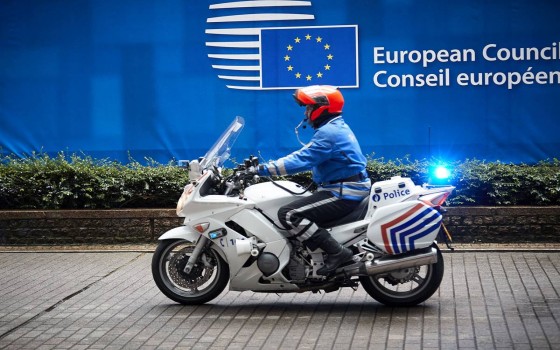
The European Union extends economic restrictive measures against Russia for another 6 months.. Against the backdrop of the ongoing war in Ukraine

- Europe and Arabs
- Monday , 27 January 2025 14:24 PM GMT
Brussels: Europe and the Arabs
The European Union Council today renewed the restrictive measures imposed by the unified bloc in light of Russia's ongoing actions to destabilize the situation in Ukraine for another 6 months, until July 31, 2025.
According to a European statement issued on the sidelines of a meeting of EU foreign ministers in Brussels today, Monday, the statement also stated, "These economic measures, which were first introduced in 2014, have been significantly expanded since February 2022 in response to Russia's unprovoked military aggression against Ukraine.
They currently consist of a wide range of sectoral measures, including restrictions on trade, finance, energy, technology, dual-use goods, industry, transport and luxury goods. They also include: a ban on the import or transfer of seaborne crude oil and some petroleum products from Russia to the European Union, the cancellation of the SWIFT system for several Russian banks, and the suspension of broadcasting activities and licenses in the European Union for several Kremlin-backed disinformation outlets. In addition, the specific measures enable the European Union to confront circumvention of sanctions.
As long as the illegal actions of the Russian Federation continue to violate fundamental norms of international law, including in particular the prohibition on the use of force, it is appropriate to maintain all measures imposed by the European Union in force and to take additional measures if necessary.
On 31 July 2014, the Council adopted Decision 2014/512/CFSP on restrictive measures in view of Russia’s destabilising actions in Ukraine.
In addition to economic sanctions against the Russian Federation, the European Union applies various types of measures in response to Russia’s destabilising actions against Ukraine. These include: restrictions on economic relations with the illegally annexed Crimea and the city of Sevastopol, as well as the areas not under the control of the Ukrainian government in the Donetsk, Kherson, Luhansk and Zaporizhia oblasts; individual restrictive measures (asset freezes and travel restrictions) on a wide range of individuals and entities; and diplomatic measures.
Since 24 February 2022, the EU has adopted 15 unprecedented and severe sanctions packages in response to Russia’s full-scale invasion of Ukraine. In its conclusions of 19 December 2024, the European Council reiterated its unequivocal condemnation of Russia’s war of aggression against Ukraine, which constitutes a clear violation of the UN Charter, and reaffirmed its continued support for Ukraine’s independence, sovereignty and territorial integrity within its internationally recognised borders. It also reaffirmed the EU’s unwavering commitment to provide continued political, financial, economic, humanitarian, military and diplomatic support to Ukraine and its people for as long as it takes and as much as necessary.












No Comments Found